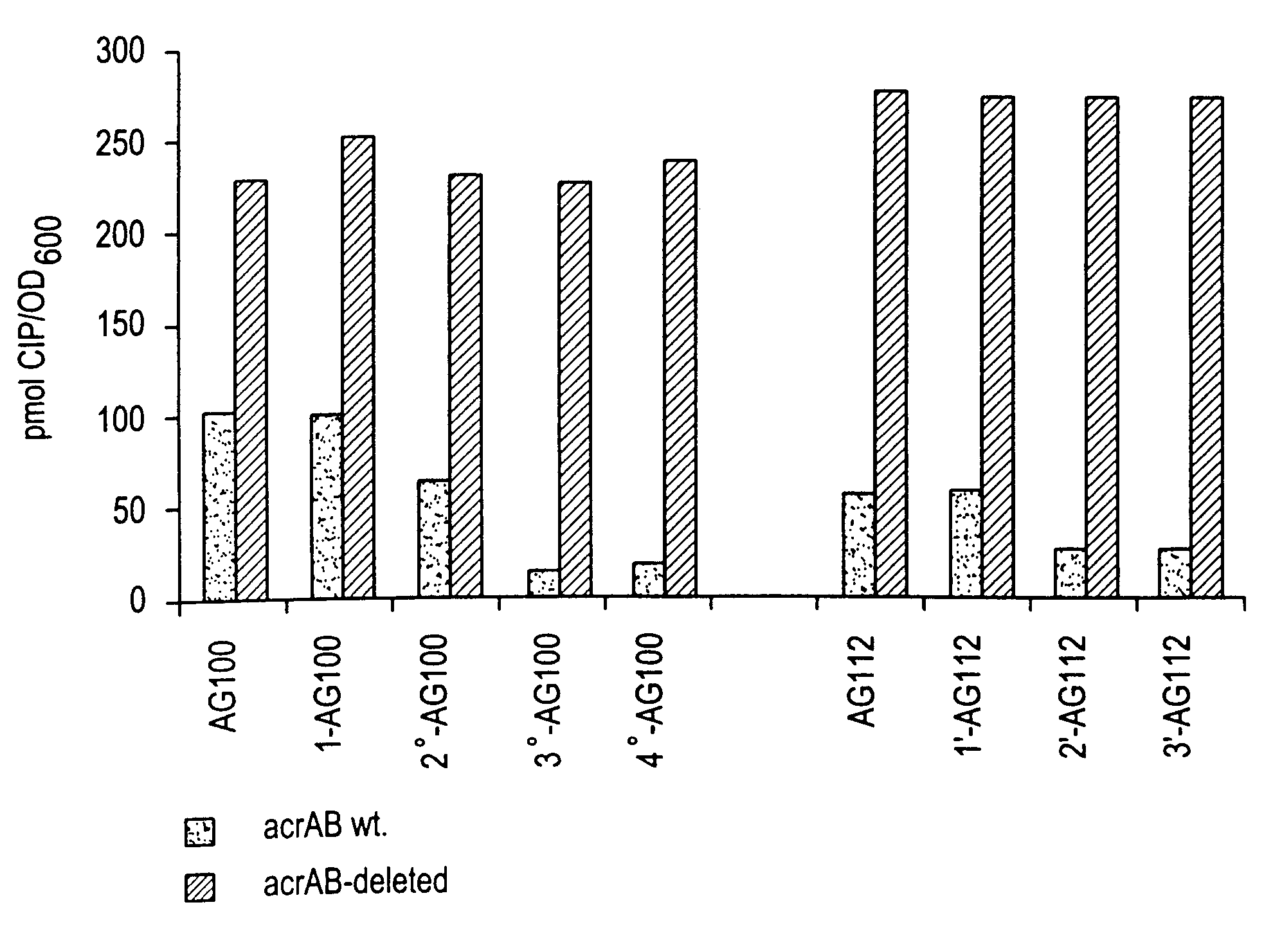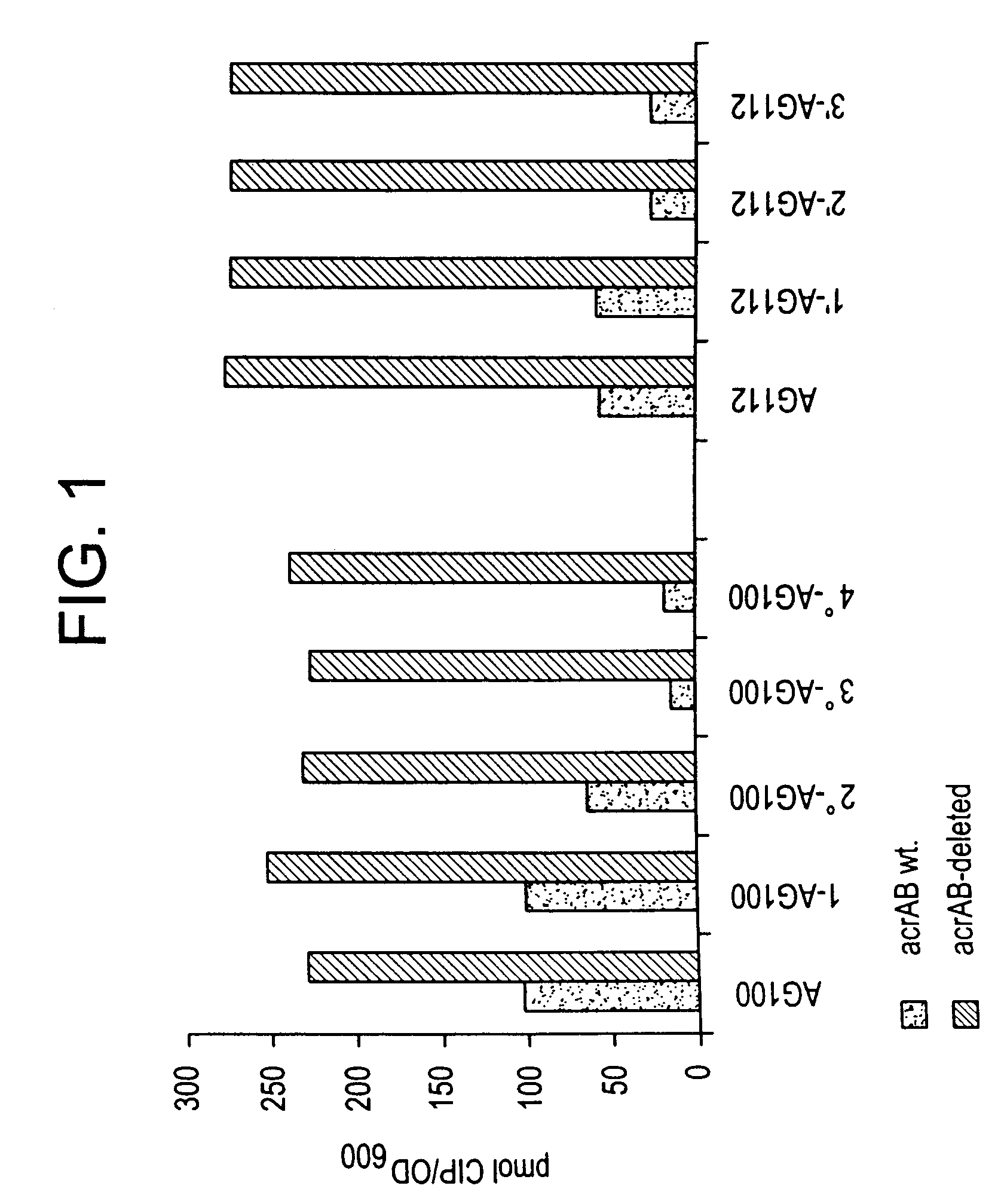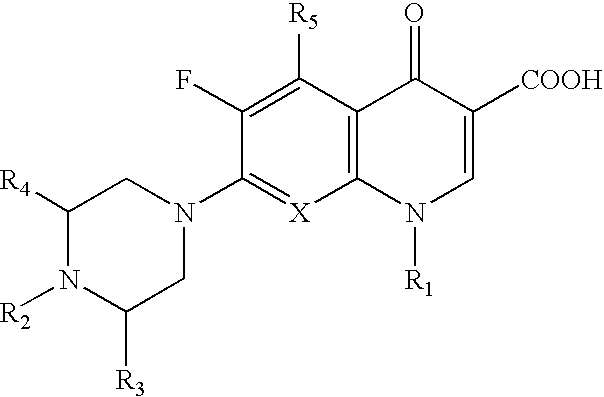Methods of reducing microbial resistance to drugs
a technology of microbial resistance and drugs, applied in the field of methods of reducing microbial resistance to drugs, can solve the problems of marrab not encoding a multi-drug efflux system, antibiotic resistance, and in particular resistance to fluoroquinolones, and achieve the effect of enhancing the antimicrobial activity of a drug
- Summary
- Abstract
- Description
- Claims
- Application Information
AI Technical Summary
Benefits of technology
Problems solved by technology
Method used
Image
Examples
example 1
Preventing Efflux Via an AcrAB Pump Renders Highly Resistant Microbes Comprising Chromosomal Mutations in Drug Target Genes Sensitive to Drugs
Ineffectiveness of Gyrase Mutations in Escherichia coli in the Absence of the AcrAB Multidrug Efflux Pump.
[0136]Fluoroquinolones [FQs] inhibit growth of wild-type Escherichia coli at very low concentrations. While FQ efflux is present in wild-type E. coli cells, its importance is minimal except when enhanced during the development of clinical resistance. To understand the role of the AcrAB efflux pump, which is under control of the mar and sox regulons, on the level of susceptibility and clinical resistance to FQs in E. coli, two series of E coli K-12 cells (derived from wild type AG100 and from the isogenic Mar mutant AG102) with FQ resistance were generated by amplification on ofloxacin [ofx]-containing plates in-vitro and mutations conferring resistance were characterized. P1-transduction was used to knock out AcrAB. Energy-dependent uptake...
PUM
| Property | Measurement | Unit |
|---|---|---|
| concentration | aaaaa | aaaaa |
| pH | aaaaa | aaaaa |
| pore size | aaaaa | aaaaa |
Abstract
Description
Claims
Application Information
 Login to View More
Login to View More - R&D
- Intellectual Property
- Life Sciences
- Materials
- Tech Scout
- Unparalleled Data Quality
- Higher Quality Content
- 60% Fewer Hallucinations
Browse by: Latest US Patents, China's latest patents, Technical Efficacy Thesaurus, Application Domain, Technology Topic, Popular Technical Reports.
© 2025 PatSnap. All rights reserved.Legal|Privacy policy|Modern Slavery Act Transparency Statement|Sitemap|About US| Contact US: help@patsnap.com



